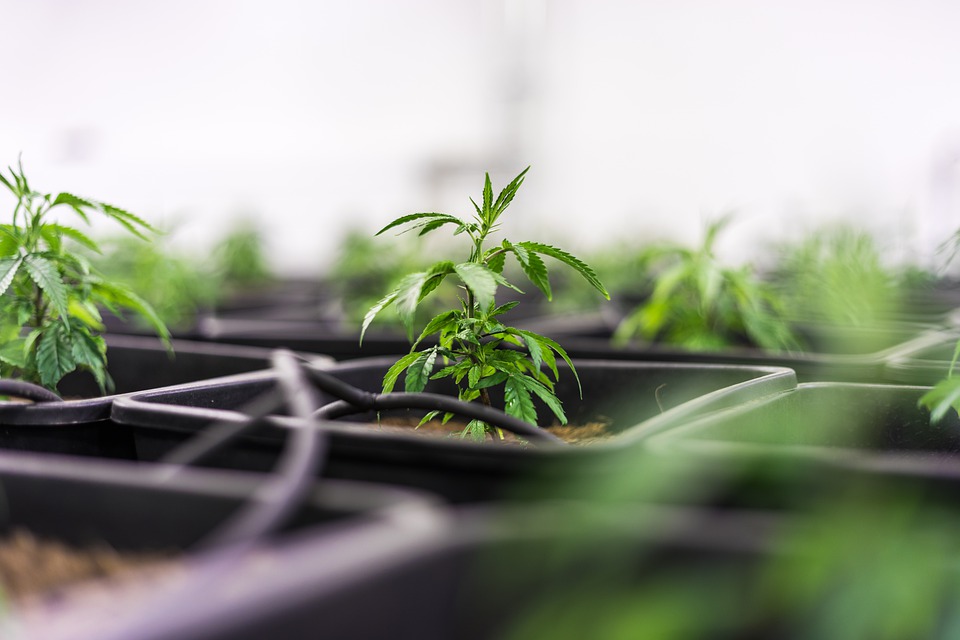Introduction
Hemp has been gaining popularity in the United States over the past few years due to its various uses and potential health benefits. This versatile plant can be used to produce a wide range of products, from clothing and paper to CBD oil and biofuels. In this article, we will explore the journey of growing hemp in the USA, from the farm to the market.
Growing Hemp on the Farm
Before hemp can make its way to the market, it first needs to be grown on the farm. Hemp is a hardy plant that can be grown in a variety of climates and soil types. Farmers typically plant hemp seeds in the spring and harvest the plants in the fall. The growth cycle of hemp is relatively short, usually taking 3-4 months from planting to harvest.
Planting Hemp Seeds
Hemp seeds are planted in rows just like any other crop. The seeds need to be planted at the right depth and spacing to ensure proper growth. Hemp plants require adequate sunlight and water to thrive, so farmers must monitor their crops closely throughout the growing season.
Cultivating and Harvesting Hemp
Once the hemp plants have reached maturity, they are ready to be harvested. Hemp is typically harvested using specialized equipment that can cut and gather the plants efficiently. Once the plants have been harvested, they are dried and processed to extract the various parts of the plant that can be used for different products.
Processing and Manufacturing
After hemp plants have been harvested, they go through a series of processing steps to extract the fibers, seeds, and other valuable parts of the plant. These raw materials can then be used to produce a wide range of products, from textiles and building materials to food and supplements.
Extraction of CBD Oil
One of the most popular products made from hemp is CBD oil, which is extracted from the flowers and leaves of the plant. CBD oil has gained popularity for its potential health benefits, including pain relief and anxiety reduction. The extraction process typically involves using solvents or CO2 to separate the CBD from the plant material.
Manufacturing Hemp Products
Once the raw materials have been extracted, they can be used to manufacture a variety of products. Hemp fibers can be spun into yarn and woven into textiles, while hemp seeds can be pressed to extract oil for cooking or skincare products. Hemp is also used in the production of biofuels, plastics, and building materials.
Bringing Hemp to Market
Once hemp products have been manufactured, they are ready to be brought to market. This can involve selling products directly to consumers, through retailers, or through online channels. Hemp products are becoming increasingly popular due to their sustainability and potential health benefits.
Regulations and Legalization
As of 2018, the Farm Bill legalized the cultivation and sale of hemp products in the United States. However, there are still regulations in place that govern the production and sale of hemp. Farmers and manufacturers must adhere to these regulations to ensure that their products are legal and safe for consumers.
Market Trends and Future Outlook
The market for hemp products is rapidly growing in the United States and around the world. Consumers are increasingly seeking out sustainable and natural products, making hemp an attractive option. As more research is conducted on the potential health benefits of hemp, the market is expected to continue to expand in the coming years.
Conclusion
Growing hemp in the USA is a complex process that involves planting, cultivating, harvesting, processing, and bringing products to market. As the popularity of hemp continues to grow, farmers and manufacturers are finding new ways to utilize this versatile plant. From textiles to CBD oil, hemp products offer a wide range of benefits and possibilities for consumers.
FAQs
Q: Is hemp the same as marijuana?
A: While both hemp and marijuana come from the cannabis plant, they are different varieties with distinct properties. Hemp contains very low levels of THC, the psychoactive compound found in marijuana, making it non-intoxicating and safe for use in a variety of products.
Q: Can hemp be grown organically?
A: Yes, hemp can be grown organically without the use of synthetic pesticides or fertilizers. Organic hemp farming practices are becoming more common as consumers seek out sustainable and natural products.
Q: Are hemp products legal in all 50 states?
A: With the passage of the 2018 Farm Bill, hemp products are legal in all 50 states as long as they contain less than 0.3% THC. However, it is important to check the laws in your state to ensure compliance with local regulations.

